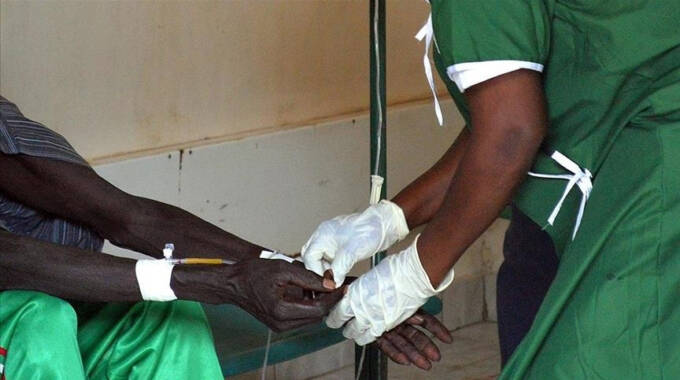
The ManicaPost

Tendai Gukutikwa
Health Reporter
THE spike in cholera cases in Manicaland has been attributed to people who are not taking safety precautionary measures during funeral gatherings.
Speaking during a Poliovirus sensitisation meeting on Wednesday, Manicaland provincial health promotions officer, Mrs Agnes Mugumbate said cholera cases are spreading rapidly as a result of funeral gatherings that are being conducted without the supervision of environmental health personnel.
She advised people to engage Environmental Health Technicians (EHT) when there is a funeral in the community.
“It has emerged that most cholera cases in Manicaland are associated with gatherings, most of them being funerals. In Mutare District, most of the cholera cases spread from a funeral which is a very sad development because all that could have been avoided had health workers been engaged to supervise such a gathering,” she said.
Mrs Mugumbate said there is need to hurriedly seek medical services when one starts experiencing cholera related symptoms as most patients are visiting the hospital when it is already too late for them.
“We are having a challenge of cholera patients waiting until the last minute to seek medical attention. Most patients are going to clinics and hospitals when they are already severely dehydrated and it will be too late to save their lives. We urge people to visit health facilities immediately after experiencing diarrhoea with or without vomiting,” she said.
Mrs Mugumbate said statistics show that Chimanimani has the highest number of suspected cholera cases followed by Mutare Rural and Mutare City districts.
“Chimanimani District has recorded 133 cases so far, Mutare City (59), Mutare Rural (82), Mutasa (42), Nyanga (eight) and Buhera (seven). Makoni is yet to record a case.
“We have recorded nine cumulative deaths so far in the province,” she said.
Mrs Mugumbate said there is need to raise awareness and encourage people to be hygienic at all times as cholera spreads fast in unhygienic environments.
Within a week, the number of cases recorded in Manicaland had tripled.
According to the Zimbabwe Situational Report that was released on Wednesday, the province had recorded 383 suspected cholera cases, 28 of which were recorded on Tuesday.
89 were confirmed as cholera cases, while 32 were admitted in hospitals across the province.
17 were admitted in Mutare Rural District, 10 in Chimanimani, one in Nyanga and another one in Buhera.
The nation had recorded 1 017 suspected cases according to the report.
288 were confirmed.
Meanwhile, the Ministry of Health and Child Care (MOHCC) will in the coming week commence the third round of the poliovirus supplementary immunisation campaign across the province.
Recently, neighbouring Mozambique recorded an outbreak in polio, thus prompting countries in the region to conduct supplementary polio campaigns for protection.
Mrs Mugumbate said the four-day campaign will run from Tuesday until Friday next week.
The campaign is targeting every child below five years old.
“To protect children under five years, MOHCC is conducting rounds of the Oral Polio Vaccination (OPV) campaign targeting all provinces in the country. The first two rounds were conducted in 2022.
“However, having received the first two doses does not mean that the child should refrain from receiving this particular dose. Every child should receive the dose since it is an extended dose of the ones they have already received,” she said.
Mrs Mugumbate said door-to-door campaigns will also be conducted to compliment the campaigns that will be happening at health facilities across the province.
“Our teams will also travel to hard to reach areas as well as to areas where we have vaccine hesitant community members. While we will be vaccinating the children, we will also be raising awareness of the virus to the hesitant parents. It is important that they know that poliovirus is a highly infectious disease spread mainly through close contact with an infected person.
“The virus only affects humans and is spread through the faeces of an infected person or via droplets after someone sneezes or coughs. Infection usually occurs because of poor hand washing or through the consumption of contaminated food or water. Unfortunately, a person can be infectious and transmit the virus even before symptoms develop,” she said.



